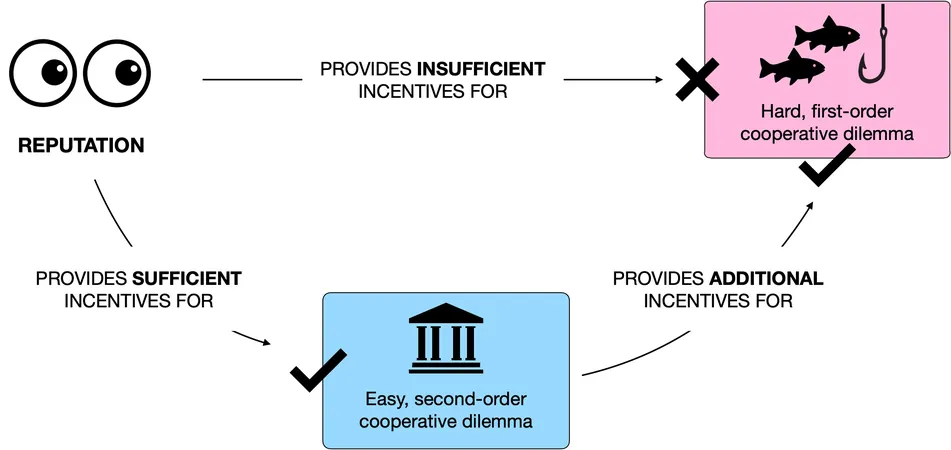
Alarming Rise of Anxiety Disorders Among Older Canadians: Indigenous and Racialized Groups at Greater Risk!
2024-12-18
Author: Emma
Key Findings and Summary
The prevalence of anxiety disorders among older Canadians (65 and older) shows a worrying trend, especially within Indigenous and racialized communities. Recent research from the Canadian Community Health Survey (CCHS), spanning from 2015 to 2022, reveals that roughly 6% of older Canadians reported being diagnosed with anxiety disorders. Notably, women are significantly impacted, with a diagnosis rate of 7.5% compared to just 4.2% for men.
Major Insights:
1. Indigenous Males Experience Higher Risk: The study uncovered a striking statistic; Indigenous males were found to have a 1.5 times higher likelihood of suffering from anxiety disorders compared to their non-Indigenous, non-racialized counterparts. This highlights the urgent need for culturally appropriate mental health support within Indigenous communities, historically burdened by trauma and systemic inequities.
2. Racialized Females Show Lower Odds: Interestingly, the findings pointed to a lower susceptibility among Chinese and other racialized females to anxiety disorders, a 0.6 and 0.7 times likelihood respectively when contrasted with non-Indigenous, non-racialized females. The implications of this data call for further investigation into the socio-cultural factors that mitigate anxiety in these populations.
3. Socioeconomic Factors Play a Crucial Role: The impact of socioeconomic status was stark, where older adults in lower-income brackets had nearly double the odds of experiencing anxiety disorders. This association takes on added complexity considering chronic conditions—those with multiple health issues were also found to be at increased risk.
4. Pandemic’s Lasting Effects: The COVID-19 pandemic undeniably exacerbated mental health issues, with older Canadians reporting higher levels of anxiety during the pandemic compared to before. This change in mental health landscape underscores the need for robust pandemic recovery strategies in mental health care systems.
Understanding Anxiety in Older Canadians
Anxiety disorders, characterized by overwhelming fear and avoidance behaviors, can severely diminish quality of life and overall well-being. With conditions like generalized anxiety disorder and panic disorder, the consequences can extend beyond mental health, impacting physical health and social integration.
Lifetime Experiences Matter: Factors contributing to anxiety include a history of trauma and socioeconomic stress, further amplified for marginalized populations who face discrimination. Data indicates that around half of racialized and Indigenous individuals reported experiences of discrimination, directly correlating with poorer mental health outcomes.
Recommendations for Better Mental Health Strategies
This research advocates for targeted interventions focusing on: - Culturally Informed Care: It's crucial that mental health services consider cultural contexts, particularly for Indigenous and racialized populations. - Increased Accessibility: Strategies to elevate mental health literacy and access to care for older adults are imperative. - Research Continuity: Ongoing studies must continue to explore the distinct challenges faced by older Canadians, particularly in light of fluctuating social, economic, and health conditions.
Conclusion: A Call for Action!
The data presented has revealed critical insights into the mental health crisis among older Canadians, particularly Indigenous and racialized groups. As the population ages, it is vital that mental health care systems adapt to meet the pressing needs of these communities. Addressing the mental health needs of these vulnerable populations not only improves individual well-being but also enhances societal health as a whole.
The findings serve as a wake-up call to policymakers and healthcare providers to prioritize mental health resources for older Canadians, ensuring that no one is left behind in this critical area of public health. Keep an eye on this developing story—your mental health might depend on it!









 Brasil (PT)
Brasil (PT)
 Canada (EN)
Canada (EN)
 Chile (ES)
Chile (ES)
 España (ES)
España (ES)
 France (FR)
France (FR)
 Hong Kong (EN)
Hong Kong (EN)
 Italia (IT)
Italia (IT)
 日本 (JA)
日本 (JA)
 Magyarország (HU)
Magyarország (HU)
 Norge (NO)
Norge (NO)
 Polska (PL)
Polska (PL)
 Schweiz (DE)
Schweiz (DE)
 Singapore (EN)
Singapore (EN)
 Sverige (SV)
Sverige (SV)
 Suomi (FI)
Suomi (FI)
 Türkiye (TR)
Türkiye (TR)